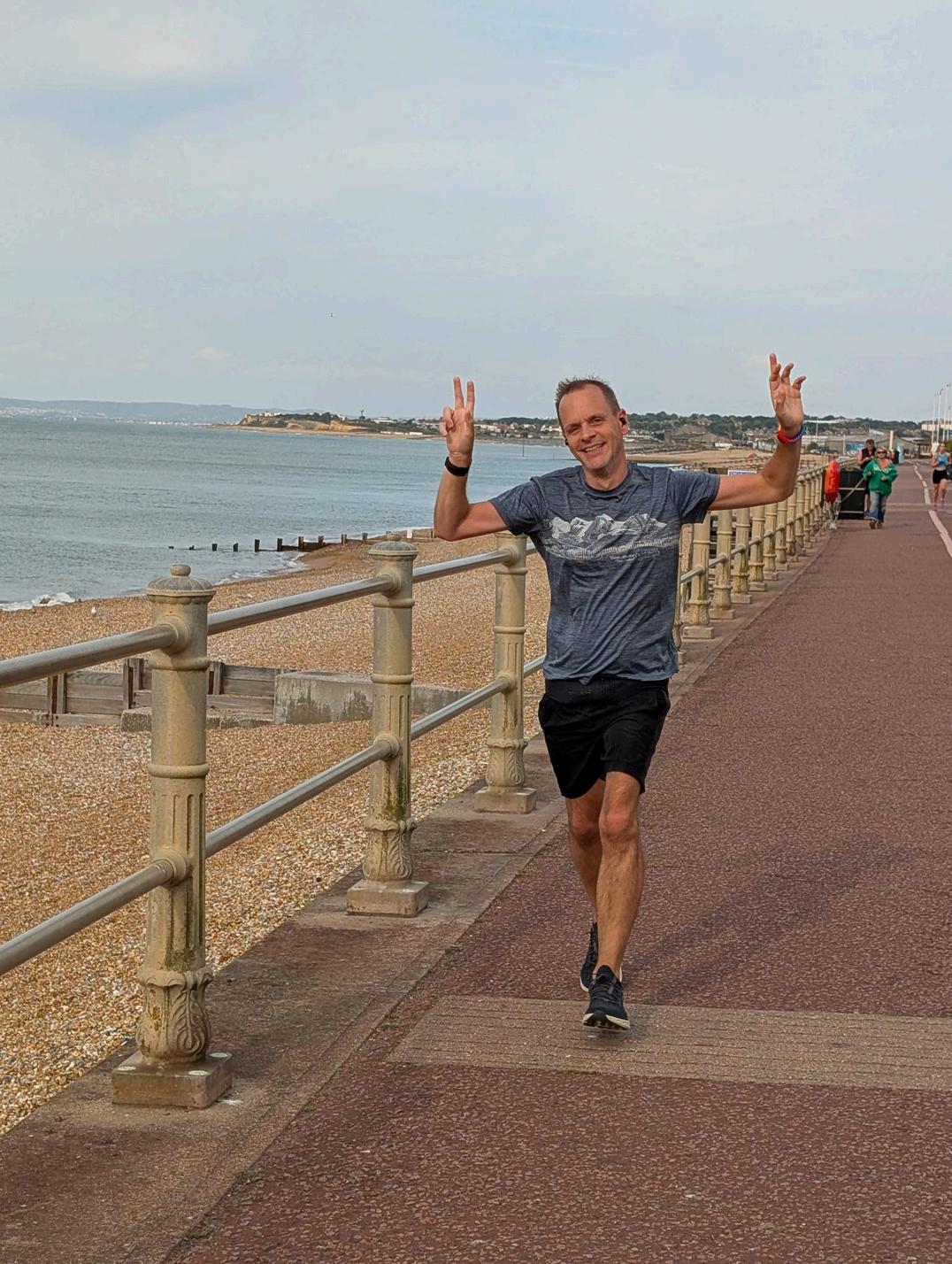Care Leavers Connected

‘I feel, rather than remember, the negative things.’
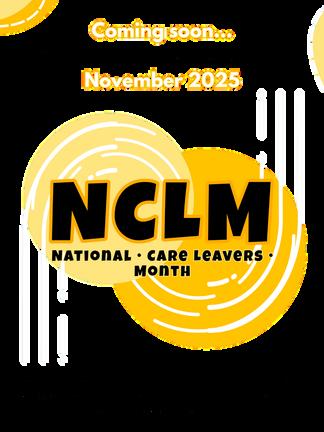
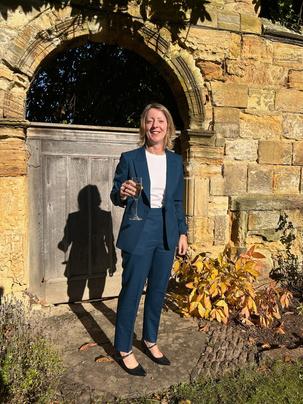



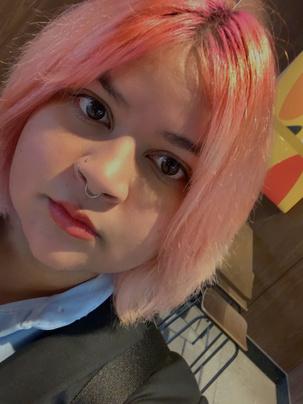



‘I feel, rather than remember, the negative things.’







“...the challenges, transforming and finding identity, does not stop a
Welcome to this edition of Care Leavers Connected published during the first National Care Leavers Month in November 2025. The theme of the Month is “Rising as Me: Overcoming challenges, transforming, and finding your identity”
The Care Leavers Connected magazine’s key message for the month is that the challenges, the changes, transforming and finding identity, do not stop at 25
Being a care leaver can almost always create a difficult start in life and place a care leaver in a situation where there is an absence of parent or carer support. For example, finances and resources are hard to come by and there may be no Bank of Parents to buy something urgently needed or offer some cash or a loan
backstop
This absence of parental or carer support impacts on many other areas of life Many people in the 20s, 30s and 40s, look to their parents not only for financial support but for many of the tips, tricks and ways of getting along as they make their way through life.
Most parents would not dream of saying to a 25 year old “ok, you have turned 25 now, you are on your own, so don’t look to us for help ” They are often there as a backstop should something go wrong. Yet this is the place that many care leavers can find themselves inwith no backstop In addition, many care leavers
If you are reading a hard copy of this magazine and need any of the links included, please contact connected@careleavers com

feel that their paired because of their care experiences Yet the state does not make any accommodation for this and provides threadbare resources for much needed mental health support
Care leavers are resourceful
Care leavers respond to these and other challenges in very different ways Of necessity, many have to be resourceful just to get by in life. Despite this resourcefulness, some thrive and others struggle a bit more.
The articles in this issue from Theresa, Hanna, Mick and Peter, and the poems Sabrina about Christmas and Black Sheep Rising exemplify why the care leaving experience does not stop at 25 and why care leavers have to continue to be resourceful, sometimes until very late in life
To recognise Care Leavers Month we will be sharing Care Leaver Voices on our social media channels including our new Tik Tok account. If you would like to share your voice email connected@careleavers.com
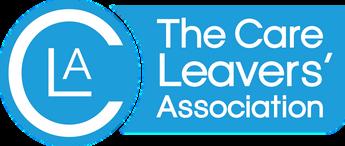


We’re teaming up with Community Energy Pathways to train care-experienced adults as Energy Mentors, and offering paid opportunities to deliver practical energy sessions for care leavers. The project builds skills, confidence, and financial independence, while tackling real issues like rising fuel costs, energy debt, and access to affordable warmth By drawing on lived experience, our mentors bring understanding that can’t be taught. Creating a safe space where care leavers feel seen, heard, and supported

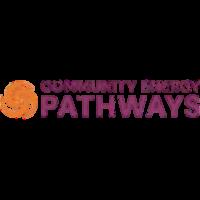
The new Care Leavers Connected website was launched in May. It celebrates the diversity and strength of those who have navigated life in and after care This website was set up as a pilot which we decided to keep as simple as possible We encourage you to register on it and look for or add any homes or placements you were in when you were in care. We are now in the process of upgrading the site for the new year to improve it
Isle of Wight council spent over £500,000 to house a vulnerable 10-year-old boy in an illegal children’s home for four months, the Bureau of Investigative Journalism revealed. The council was charged £29,000 per week for the placement in a semi-detached house leased by the local authority The boy was the only resident. The home is not registered with Ofsted, the education and care watchdog, which makes operating it a criminal offence.

We understand that some of the articles in this magazine are about sensitive issues If you need any support please contact us on 0161 826 0214 or email connected@careleavers.com or on social media. If you need urgent support please contact the Samaritans on 116123
“Written off, I left school with no qualifications”
At 11 I went into care after years of abuse at home, and I remained in the system until I was 21.
Countless moves, abusive placements, and experiences left me with complex PTSD, but they never took away my drive to prove myself, to do good, and to rise above the stereotypes that tried to define me
At school, I connected through humour, but all teachers saw was a problem child I was sent to a PRU, where I was exposed to aggression and violence. That was never my norm
I craved love, care, and to be better. I formed close bonds with the care workers and stayed on, even as the last girl when it became a boys’ school. Teachers told me I was bright and could succeed in mainstream, but I didn’t believe them.
I met a friend who believed in me
Written off, I left school with no qualifications and low self-esteem, jumping from one low-paid job to the next, always believing I was the problem. My drive to help others was misplaced in relationships where I tried to fix people who ended up hurting me.
The cycle of abuse continued until 2002, when I met a friend who believed in me and everything changed. She encouraged me to try university - something people like me weren’t supposed to do. In 2009 I graduated with a degree in computer science, one of the proudest moments of my life.
I built a successful career in technology, thriving on the chaos, delivering major changes, leading global

teams, and building a reputation for forging strong relationships and fixing issues My strength was always bringing people together, cutting through problems, and making things better Even in the corporate world, my true drive was to help.
Trauma never truly leaves
But trauma never truly leaves I live with complex PTSD. Even with therapy, it affects me now, but I am more aware and stronger for it
Along the way I have built my own family. That same friend from 2002 is still in my life, and I am aunt to her three children. In 2022 I met my soul mate, who is my rock and sees me for who I am I am a lucky woman. I truly believe that what happened to me has given me strength, perspective, and the drive to help others
The next stage of my life is outside technology I’m driven by a desire to turn what I went through into something positive for others. People often come to me for advice and coaching, and I know I can use that skill to mentor and support, especially other care leavers I had to find my own way, and now I want to help others navigate a world beyond care. Theresa
Care Leavers Connected Magazine is produced by care leavers for care leavers. Please read through the magazine and give us feedback.
“This connection to my early childhood foster sister is a true miracle.”
Hannah, writes about finding her files aged 56:
“My 57-year-old records from when I was in care were found and shared with me both from Cumbria and Manchester.
They arrived in early September 2025 and were heavily redacted but allowed a lens into my life from 2 months old to 2 years 11 months when I was removed from long term foster care and put into the group home Sandath in Penrith.
Getting the information was tough, I was tenacious for ten months and getting the records nearly fell over at the last hurdle with encrypted files being sent over that I could not access in the USA where I live, and that Social Services did not tell me they had sent! I ended up giving the record keepers permission to send them unencrypted

There were two clues
Despite the 56 pages being heavily redacted, there were two clues to the people that cared for me for the first three years of my life, after my behaving like Agatha Christie’s Miss Marple, I found the lady who was my ‘sister’ from that foster home, she was a biological child of the family.
Facebook is a good search tool when you have some data
I was meant to be adopted by those foster parents, but something happened, and I was removed from them.
This is murky with two different accounts of events, one from social services who took me, and one from my ‘sister’ Mary, who insisted her parents wanted to keep me. However, the conversation with Mary was healing and beautiful for both of us. I turned 57 in late September, and she turned 60 in August We will meet up on my trip to the UK in October and she is coming to the States to see me in February 2026!
I do not want to give people false hope as the records are old, and many others may have been lost or destroyed from so long ago, but it is amazing to know my whole life where I have been, this was the last missing piece. I feel so blessed.
It is emotional, and people should understand the potential impact, in my case the truth shone light on other information I was told was true and turned out not to be I have had a couple of therapy sessions following this discovery and am looking after myself as I process this new information
That said, again having my whole story is wonderful and marvellous and despite the foster parents and another child now having passed on, this connection to my early childhood foster sister is a true miracle Many thanks to Will at Care Leavers Connected for guiding my path to discovering my story.
Hannah
Do you want to share your account of you and your files? You can remain anonymous if you want to.
‘I feel, rather than remember, the negative things.’
In the late 90s, about 25 years after Mick Davidson left care, he asked Buckinghamshire County Council (BCC) for his records. They responded “all your records were destroyed in a fire”. Mick writes:
“I perceived it as a lie, I didn’t have evidence, but because it was just too convenient. In care from 6, I was in The Orchard in Basingstoke, then South Wing, Bledlow and The Mount in Little Kimble (Bucks) eventually escaping just before my 18 birthday. th
I’d been a bit difficult in one home and had become unpopular with certain staff. In my defence, when you abuse the power you have over others, don’t be surprised when they bite back.
I soon had my, slightly redacted, history.
BCC blocked my access because it ensured I couldn't access anything that might embarrass them. In the early 2000s, I discovered they were legally obliged to give survivors our records, so applied again to BCC and also Hampshire County Council. I soon had my, slightly redacted, history
Reading them was not life-changing, but filled in gaps in my mental timeline, as well as supplying references and details to things half-remembered or long forgotten
They helped me paint pictures of my life that are hard to grasp now, how do you properly remember anything through the mental and emotional turmoil you ’ ve experienced?
I recall many good things that happened during my internment, mainly with other children, but I feel, rather than remember, the negative things.
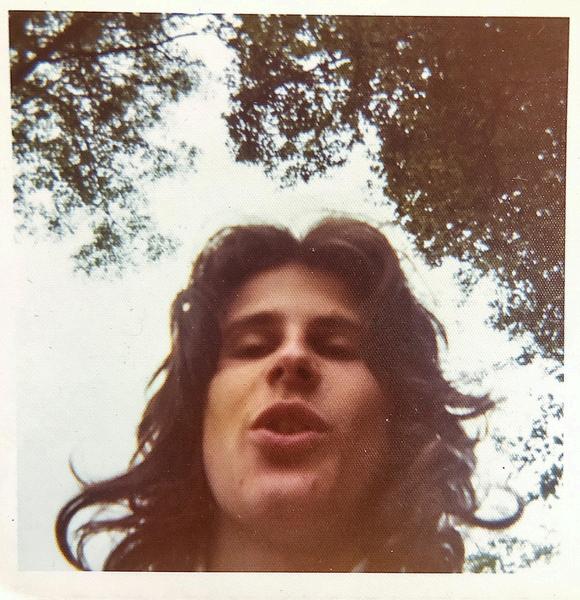
Feelings are difficult to express, even positive ones, so seeing the details of incidents is very helpful to me now, as I can deal with them more subjectively.

My records make fascinating reading but seem to be missing key information.The adults wrote my history with their spin, leaving out my voice, but their guilt is shown by their omissions and that’s the important thing.
I didn’t want to take legal action, I just wanted a better picture of my life to help me understand what had happened. Seeing my files has definitely helped, I feel better emotionally for having them as a physical object
One thing I’ve experienced from being in care is that my childhood has pretty much disappeared. When you are in care, the people in your life arrive and then vanish forever, your history goes with them You are the only one who remembers and knows, meaning the most important times in your life are invisible and intangible, as if you and they never existed. Having your records brings your childhood back to life.
Despite the negatives, the many unanswered questions and the missing information, having my records is still pretty comforting and I’m very glad I have them.”
If you were at my homes and want to get in touch you can contact me, Mick, here: mjmdavidson@gmail.com.
In 1995, I wrote an article for the Times Educational Supplement (TES) about the exceptional educational deprivation faced by Children Looked After now more commonly referred to as Care-Experienced People (CEP)—and the devastatingly low number of them progressing to university.
As a young man who had somehow navigated this trajectory and arrived at Emmanuel College, Cambridge, I was acutely aware of how rare my presence there was. It was not just unusual it was almost unheard of.
Two decades after my time at Cambridge, it was estimated that only one in 600 young people from care backgrounds would go on to university. That statistic, stark as it was, likely meant I had been the only Looked After student at Cambridge during my years there. Socially, it certainly felt that way. I found myself explaining to friends from Eton, Harrow, and Marlborough what “being in care ” actually meant. It was a foreign concept to them one that highlighted the chasm between our worlds
Yet, the publication of my article in the TES lit a flame It sparked attention, conversation, and most importantly action Simon Ritchie of the Buttle Trust and the Gulbenkian Foundation stepped forward with funding for a four-year research pilot. That initiative pump-primed a national conversation, reaching universities and government alike.
Today, the landscape has changed. Depending on the source, between 18% and 22% of Looked After young people now attend university a seismic shift from the one-in-600 figure of the past. For Professor Sonia Jackson and me, the platform the TES provided was instrumental in persuading institutions to take this issue seriously. But progress must not stall here.
What strikes me now is the next frontier: postgraduate education. In a world that is increasingly competitive, where Masters degrees and PhDs are becoming standard fare for career advancement,
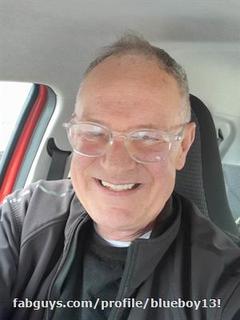
CEP graduates must not be left behind I was fortunate to pursue postgraduate studies, but I am painfully aware that many young people from care backgrounds finishing their undergraduate degrees today face significant barriers to continuing their education.
If history has taught me anything
If history has taught me anything, it’s that meaningful change takes time often four years or more That’s why I write again, hoping the TES will once more be the catalyst for progress. We must now turn our attention to ensuring that CEP graduates have the financial support, mentorship, and access they need to pursue second degrees and doctorates
This is not a luxury. It is a necessity.
The rarity of postgraduate qualifications 35 years ago has given way to a new norm If we are serious about equity, inclusion, and social mobility, then we must ensure that CEP graduates are not excluded from this new educational standard
Let us not wait another generation to act
Dr McParlin Consultant child psychologist, BPS fellow, CEP, Care Experienced Person and one of the founders of the CLA in the 1990s
The above question was prompted in my mind this time last year when I attended my local Remembrance Sunday ceremony in Shipley.
These are always moving occasions Local representatives and organisations attend, along with families of those who have died in Britain’s wars. The latter often bring a wreath for a family member who died in combat. At the same time as the televised ceremony at the Cenotaph in London, there are countless local ceremonies such as these going on up and down the country.
Whatever one may think of some of Britain’s wars, there have been a lot of them and hence many casualties. This got me thinking about soldiers and others in the services who come from a care background, many of whom will have no family to mourn our miss them.
A move from one regimented institution to another
Ironically, they are likely to be disproportionately represented in the services. It was a well-known tendency in the age of institutional children’s homes, before the 1980s, to encourage boys into the services upon leaving care. After all, it was a move from one regimented institution to another, with a bed and food provided.
In trying to find out if any such children are memorialised I had a look at the list of more than 400 memorials at the National Memorial Arboretum in Staffordshire. This yielded nothing. A search of the Barnardo’s website – a charity which would have been the originator of many troops in both World Wars –has so far also drawn a blank. I was reminded of this issue on visiting the Minnesota State Orphanage Museum in the USA www.orphanagemuseum.com
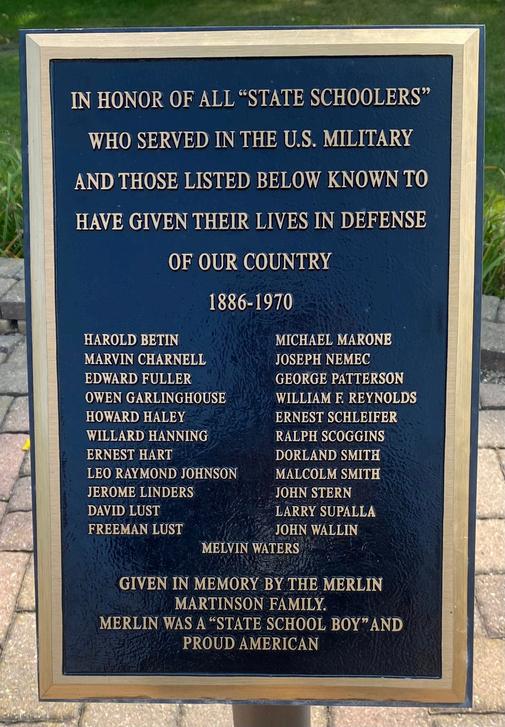
This institution housed just over 10,000 children between 1886 and 1945 Here at least one finds a memorial to 23 ‘State Schoolers’ (as they called themselves) who died in the USA’s wars between 1886 and 1970 It was put up by the family of one of children who had lived there.
This is a gap that needs addressing.
There must be many more service casualties here in the UK who don’t have a memorial along with not having any family members (or family members they are in touch with) to know of their passing. One can’t help but think that this is a gap that needs addressing. So, when I go to my local memorial service in Shipley this year I will again find myself wondering if anyone remembers the children from the care system who died in war.
Jim Goddard
If you want to contact Jim Goddard about this article please email him at info@careleavers.com
I remember my first Christmas with my foster carer. It was strange.
In my culture, Christmas wasn’t loud. No roast dinners, no gift wrap, no paper crowns. Just another day. But this—this was something else.
I woke up to presents. Presents For me.
And I didn’t know what to do with that I sat on the couch, watching joy like it was a foreign language.
Everyone laughing, hugging, And I was there.
Not just watching included My foster sister handed me a gift.
I asked if I could help. She said, “Not this year This year, you rest Next year, you help me cook.”
I cried. Because love like that? It wasn’t something I knew Not from my own family. But here it was wrapped in warmth, In mashed potatoes and silly games, In kids asking me twenty questions And the youngest tugging my sleeve, “Where’s my present?”
Six Christmases passed like that. Each one better than the last. Now I’ve got my own place
My own keys. But I’m still expected Expected to show up. And I do. Gladly
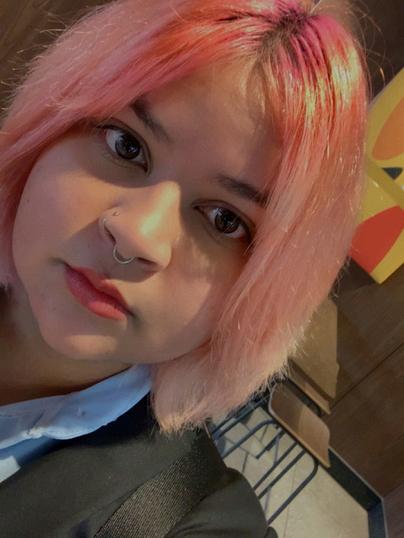
Because Christmas isn’t about blood. It’s about the people who make you feel Safe. Secure Home.
I choose them Every year.
I choose mashed potatoes and paper crowns I choose laughter and love that didn’t come from birth But from belonging.
This is my Christmas. The one I chose The one that chose me back.
Christmas can be a challenging time for some careleavers. Look on page 15 for the end of year get togethers and Christmas Zooms from the Connected Team and CLA Chair Jim Goddard
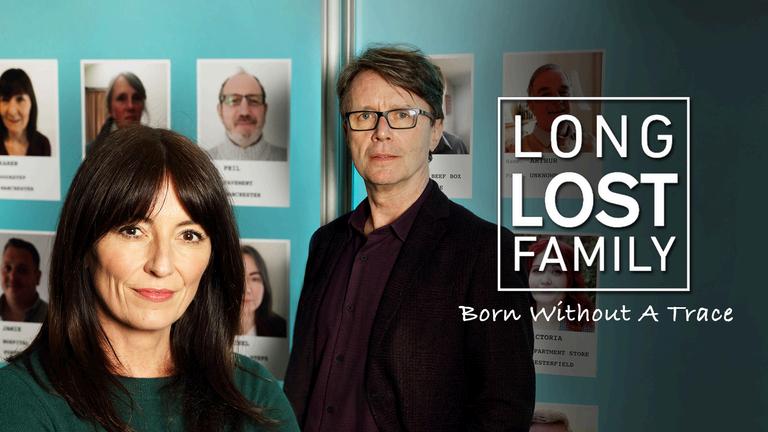
Eight Weeks is a deeply moving and inspiring memoir that tells the remarkable life story of Baroness Young of Hornsey, from her childhood in foster care, to becoming one of the first Black women in the House of Lords. In Eight Weeks, through her care records, fragments of memory, and her imagination where parts of her story are missing, Lola assembles the pieces of her past into a portrait of a childhood in a system that often made her feel invisible and unwanted. Alongside glimpses into her life as a peer, activist, and campaigner it tells the powerful story of her determination to defy the odds.
Scandal
Davina and Nicky uncover is the scandal of the Mother and Baby Homes which dealt with the “problem” of unmarried mothers in Britain. From the 1940s to the 1970s these “homes’ blighted hundreds of thousands of lives. Documents from the Ministry of Health and local health authorities suggest that government funds were paid to these institutions. With claims of cruelty growing on a shocking scale, campaigners continue to demand an apology from the UK government
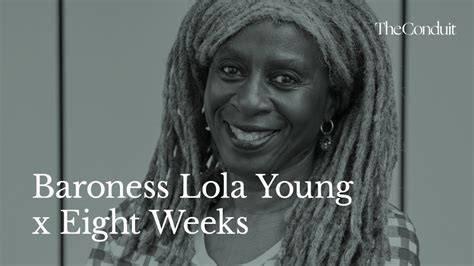

The connected team were invited to consult with the BBC Casualty scriptwriters on a storyline exploring care experience. We asked for authenticity, depth, and honesty and no tired stereotypes In a recent episode, the care-experienced voice was truly heard. The writers didn’t just listen, they wove our team’s word's directly into the script. “My grown up brain knows I am wasting my time, but there's a little girl in me that just needs answers ” This line came straight from one of our Connected team, and to hear it spoken on primetime TV is very powerful

I grew up in borrowed rooms, a guest in houses that never felt mine, names on paperwork instead of faces, roots cut short before they could twine.
I learned young how silence echoes, how a question can feel like a wound
“Where do you come from? Who is your kin?” Answers I never could tune
The black sheep in every picture, always there but never the same, my story scribbled in the margins of someone else’s frame
But years carve out their lessons I’ve carried them like stone and flame, and somewhere in the weight and fire I found the strength to make my name
Now I am father, builder, dreamer, two boys who call me home, and in their laughter I’ve discovered a love I’ve never known
No longer lost, no longer borrowed, I’ve written chapters of my own a degree soon in my hands, proof of the seeds I’ve sown
So here’s to the black sheep rising, not broken, but remade, to a man who found his family in the life he’s carved and laid
Anonymous
Every year, National Kindness Day reminds us of the power of compassion and looking out for one another. For care leavers, kindness can mean more than just a smile, it can be the difference between feeling invisible and feeling valued.
Many of us who grew up in care know what it’s like to face judgment or isolation That’s why kindness is powerful. A message from a friend, sharing a meal, or someone taking the time to listen can make us feel seen. Small acts leave a lasting impact. Kindness is also about how we treat ourselves. Care leavers often carry challenges others don’t see It’s easy to feel pressure to “ prove ourselves,” but being kind to ourselves, resting, allowing ourselves to make mistakes, or asking for help is just as important.
Research shows kindness benefits everyone
It reduces stress, improves wellbeing, and strengthens connections. For care leavers, it helps build the support networks many of us missed growing up.
Marking the day doesn’t need to be complicated:
Check in with another care leaver.
Share your story.
Encourage a friend
Do something kind for yourself.

Part of being kind to yourself might be to practice some safety and stabilisation exercises (we know this might not be for everyone, but if it is keep reading!)
A big thank you to Jamie Crabb for providing these resources
These practices are used to create a practice of safety and stabilisation before exploring difficult material They can be helpful to practice at times of worry, stress or feeling unfocused At the end of each
practice a bilateral stimulation - butterfly hug or angel hug - practiced by bi-laterally tapping on opposite arms, collarbone or knees
Safe/special place visualisation - visualising and sensing with your body a place where you feel safety and belonging. You can come back to this safe place / visualisation whenever you need comfort and calm Although this video explores nature, that isn't necessary - it can be the place you create and the place can change, or you can have multiple. Holding the safe/special feeling in your body practice bi-lateral stimulation at a slow pace
Container/vault visualisation - visualising a container/vault to contain and put away difficult material. Use this exercise when difficult thoughts or feelings are troubling or overwhelming Put these into the container/vault and let yourself know they are safe there to return to when you feel ready and supported to. Holding the contained feeling in your body practice bi-lateral stimulation at a slow pace.
Spend 5-10 minutes and writing down all the positive and supportive aspects in your life, these can range from small things you appreciate like listening to music or a calming cup of tea to positive relationships Read these out to yourself, or ask someone else to read them to you and holding the feeling of these in your body practice bi-lateral stimulation at a slow pace.
For years, one of the biggest hurdles for care leavers seeking stable housing has been the “local connection” requirement.
Under this rule, local councils could refuse social housing applications if the applicant didn’t have strong connections to that local area such as living, working, or having family nearby. For many care leavers, whose placements or life circumstances led them to move around, that rule meant exclusion from a local authority’s support or being forced to return to a place they had left behind.
But now, new regulations have come into force that remove the local connection test for care leavers under 25 when applying for social housing Under the Allocation of Housing (Qualification Criteria for Victims of Domestic Abuse and Care Leavers) (England) Regulations 2025, young care leavers and victims of domestic abuse are now exempt from having to prove a connection to the area where they want to live. This change took effect on 10 July 2025 and applies to all councils in England. Councils that historically used local connection rules (nearly 90% of them) must now exempt care leavers under 25 from this barrier
Many young people leaving care are placed far from their home area so they rarely build consistent local residency or familial ties. When they become a care leaver this often requires them to return to their original local authority to access social housing This was not only disruptive but often impossible. By removing that requirement, care leavers now have more freedom to stay in or return to communities

where their support networks exist (friends, mentors, services). As one care-experienced young person said:
“It’s not just about having a roof over my head – it’s about having a foundation to build a future. Security, dignity, independence.”
Yet, some challenges remain Because local authorities still retain discretion over priority banding or how much priority to give care leavers in their allocation schemes, in high-demand areas some care leavers may still struggle to access housing. Also, this exemption is specific to social housing allocation The change does not extend to some homelessness support rules, where local connection tests may still apply under existing legislation
This reform signals a shift in recognising that the lives of care leavers don’t always follow neat maps or fixed boundaries. By lifting the local connection barrier, the government has the opportunity to create more equitable access to homes for young people leaving care The success of this change will depend on how well it is implemented and how well care leavers and supporters push for fairness and consistency across local authorities
Phone: 0161 826 0214
Email: connected@careleavers.com
Address: The Care Leavers' Association 3rd Floor, Swan Buildings, 20 Swan Street, Manchester, M4 5JW
Join our next Care Leavers Connected Zoom on Thursday 18th December between 7.30pm - 8.30pm
Sign up here
Jim’s Christmas Day Quiz - 25 December 7-9pm th
Sign up here
Jim’s sessions are on every first Wednesday of the month between 8-10pm. They sometimes have a topic for discussion and sometimes we just talk about any topic that care leavers who turn up want to raise.
Sign up here
To recognise Care Leavers Month we will be sharing Care Leaver Voices on our social media channels including our new Tik Tok account. If you would like to share your voice please get in touch.
You will now be able to book a 15 minute slot for a phone call with one of the team every Monday between 9am-1pm using the following link . You can also watch our Access to Records video guide here.
Are you finding it hard to keep up with the cost of calls and need data? The CLA’s "Keeping Care Leavers Connected", in collaboration with The Digital Inclusion Network. Get in touch.
Would you like to be part of our Research Group? You will be sent any details of people conducting research, able to join groups and discuss any research you find with us. Email toya.dunscombe@careleavers.com to join
We are determined to ensure that care leaver issues are addressed by government. We want to make sure that care leavers have as good a life as possible. If you want to join us in campaignimg, then get in touch.
massive thank you....
To care leaver Jamie Crabb and his sister who are running the Brighton 10k in November for National Care Leavers Month to raise money for the Care Leavers Connected project. If you would like to donate please visit https://bit.ly/clabrighton10k
